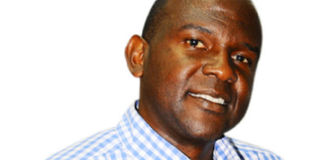Don’t judge Ugandan and Cuban doctors unfairly

Uganda’s doctor to patient ratio is more than 1:25,000. So what is wrong with the Uganda Government importing Cuban doctors or specialists ostensibly to work in rural areas where we have a shortfall? Why is there a lot of opposition for what is apparently a responsible move by government to care for its people?
One of the reasons the Minister of Finance, Mr Matia Kasaija, gave was that government is trying to avert the risk patients face in case the Ugandan doctors go on strike. By the way, as a minister, Kasaija is one of those big wigs who if the need for medical attention arose (God forbid), they would be flown abroad to India, South Africa or the UK on taxpayers’ account.
Others from government have blamed it on ‘the lack of patriotism’ exhibited by Ugandan doctors who don’t seem to understand that the resource envelope is too small for their demands for salary increases.
I even heard one who was definitely out of his mind and depth contrasting the ‘elite’ doctors with the NRA rebels who were in the bushes of Luwero engaging in subversion for five years without pay! If at all it is true that the Cuban doctor will be paid $1,500 yet the Uganda counterpart gets about $600, then one wonders why the resource envelope comes alive when it comes to rewarding foreigners.
The truth of the matter is that a doctor is a human being like a minster, permanent secretary, MP, government spokesperson, executive director of a statutory body, etc. They also need to live a decent life, feed and dress well, own a house and car, pay school fees for their children, afford medical treatment and save some money for the future.
Because of the shortage of doctors yet their service is in high demand, doctors and other health workers, also put in many more hours than the average skilled public servant. So it is not unpatriotic for them to demand for decent pay like that of a minister or the PS.
The other argument that Ugandan ‘elite’ doctors do not want to work in rural areas thus leaving citizens there to die of preventable diseases like malaria is also interesting despite it being based on fallacious logic. We have to face it. Most of the rural areas like Abim, just have buildings called health centres.
They lack basic facilities like laboratories and equipment like x-ray machines to help medical workers in the proper diagnosis of diseases. They lack electricity and running water in theatres. There are perennial shortages of basic drugs, sundries like gauze and gloves for the safety of both the doctor and the patient.
Sending a doctor to such a place is asking them to compromise on their training by diagnosing using guess work. It is consigning them to death in case they work in unsanitary conditions without proper protection.
Worse still, it is asking them to report to those duty stations and simply malinger because they will not work to their full potential yet they will get paid. Also and very important, is that a doctor is supposed to continuously update their knowledge regarding diseases, medicines, treatment options, equipment, etc.
In most rural areas without electricity or Internet connections, this is impossible hence jeopardises the quality of the doctor in due course. Yet, for example, well paid MPs receive a fully connected ipad on which many have been photographed playing solitaire for their amusement during plenary and committee sessions.
Cuban doctors are Cuban doctors, even if we brought in 10,000 of them, they will have to go back home at some point in time. We have to build our own capacity. A good healthcare system like the one in Cuba, takes years and a lot of financial investment to attain.
The Ugandan doctors can only be judged fairly if they are paid and adequately facilitated like the several who have been trained in Uganda, but now ply their trade across the globe where they are better remunerated.
I am sure the NRM government, especially those who head the Health ministry, know this very well for they have worked in these conditions, witnessed strikes for basic things like meat first-hand. But they are stuck between a rock and a hard place.
The dilemma for the NRM government is the one faced by most governments that want to hold onto power perpetually. Such governments maintain a power relation where they hold people at ransom by keeping them in infinite need of money for survival.
Plainly speaking, despite all the rhetoric those in charge about transformation and increasing household incomes, they lose no sleep when most people are poor and in constant need for financial help. When such people cry for help and line up with begging bowls, it makes those in power relevant as the sole providers.
That is why it is considered as black mail if public servants ask for a living wage because it ‘risks’ decreasing the number of people who are dependent on government - for handouts with strings attached and threatens the patronage derived from the magnanimity of those in power.
Mr Sengoba is a commentator on political and socials issues. [email protected]
Twitter:@nsengoba




